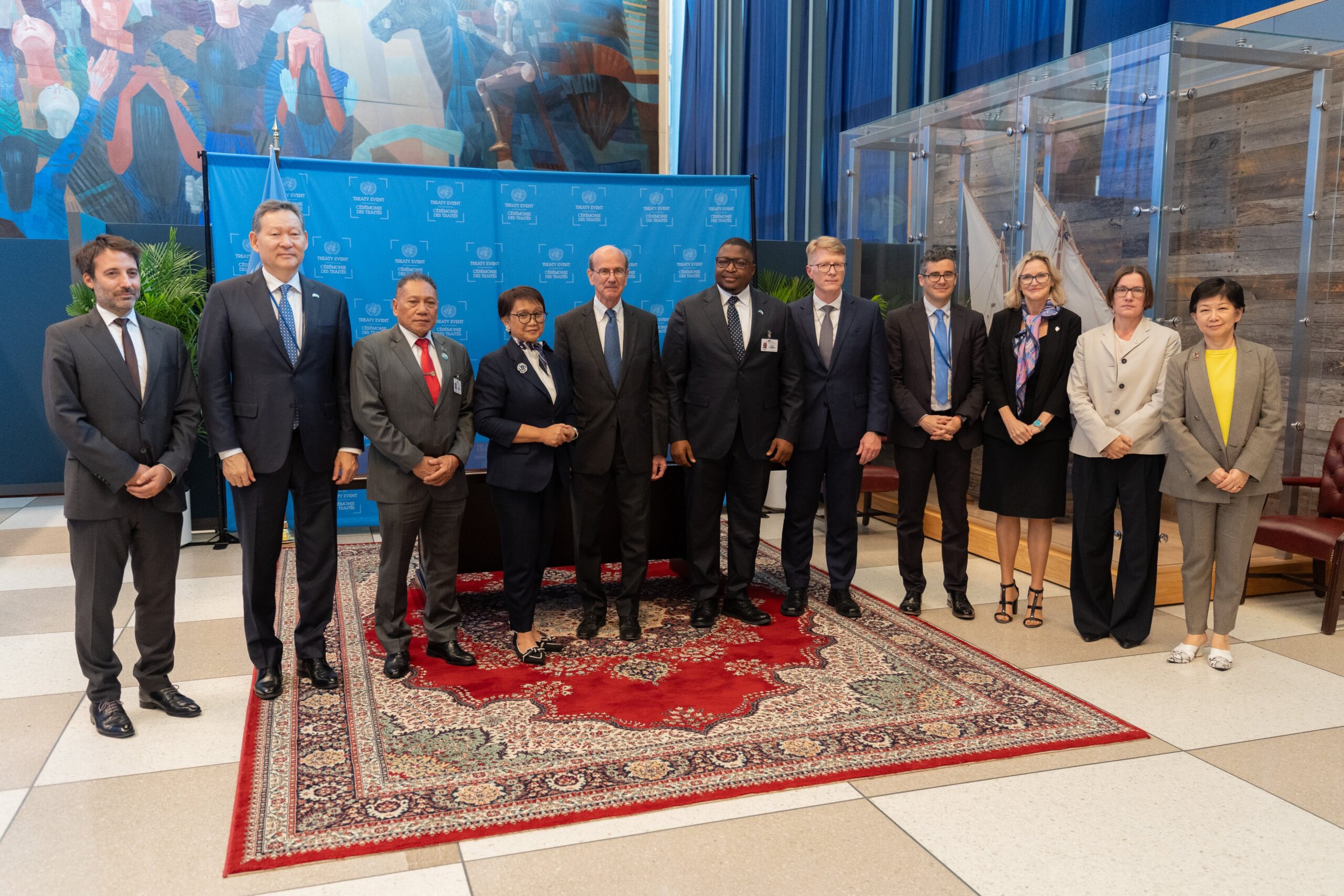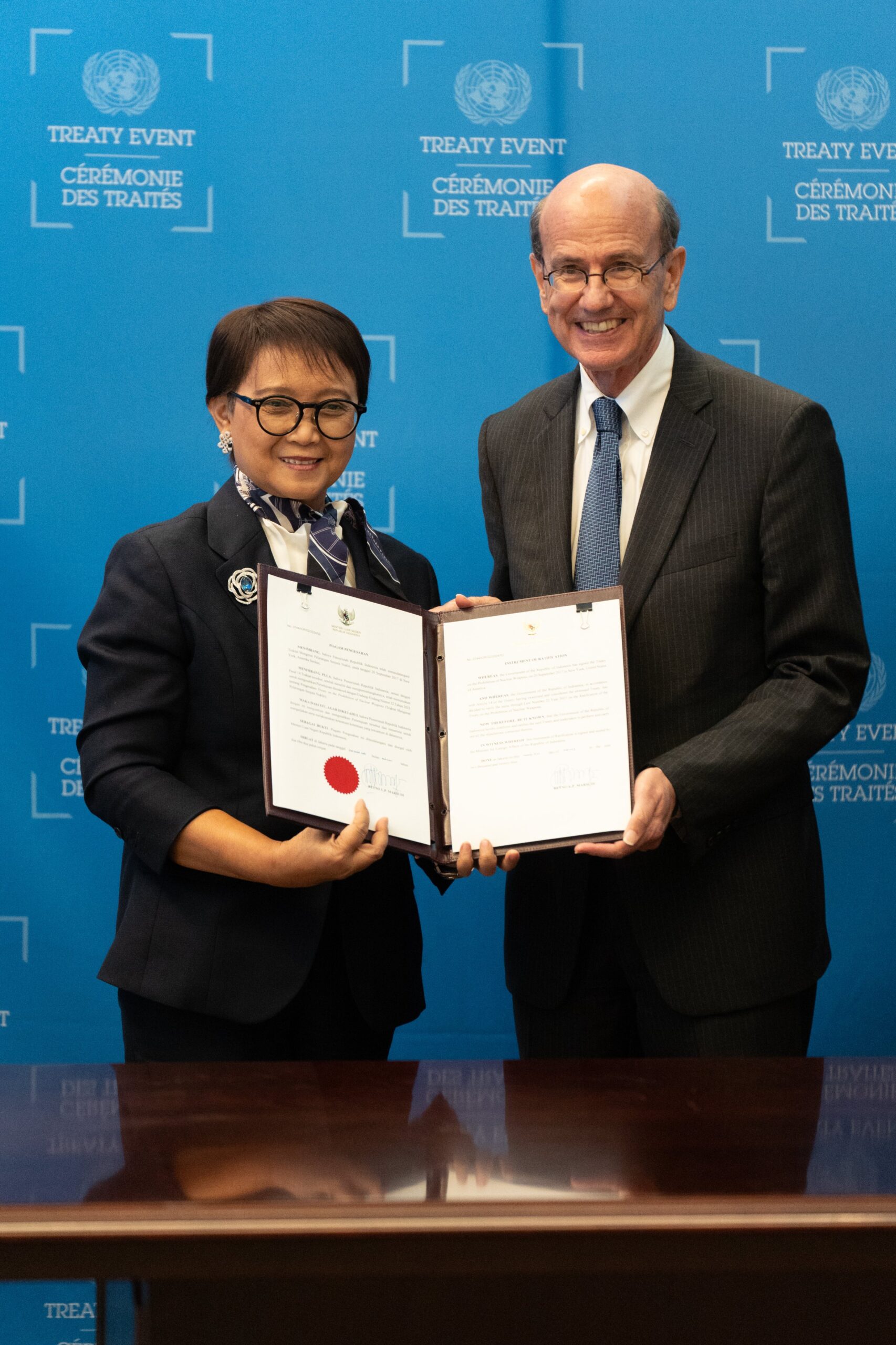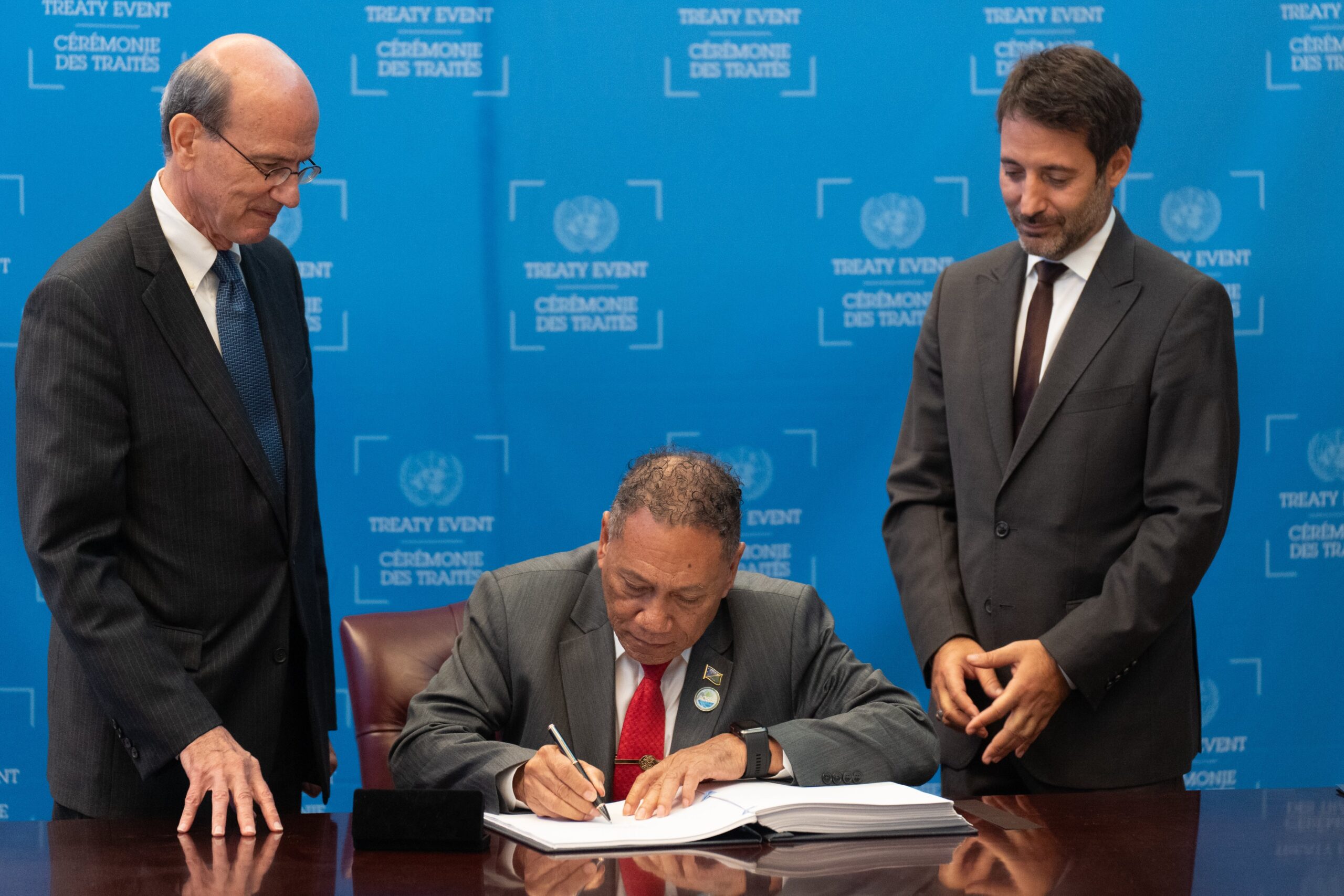MEDIA RELEASE: Indonesia and Solomon Islands ratify nuclear weapon ban treaty.
Indonesia and the Solomon Islands are among the newest state parties to the UN Treaty on the Prohibition of Nuclear Weapons (TPNW), making Australia increasingly an outlier within the Asia-Pacific region.
The Indonesian foreign minister, Retno Marsudi, and Solomon Islands minister of foreign affairs and external trade, Peter Shanel Agovaka, deposited their country’s instruments of ratification at a high-level ceremony at the United Nations headquarters in New York on Tuesday (Wednesday morning in Australia), bringing the total number of states parties to 73. A further 25 states have signed but not yet ratified the treaty.
Indonesia is the largest country by population to have ratified the landmark UN agreement to date. Australia shares a close economic, diplomatic and defence relationship with the Muslim-majority nation, which is one of Australia’s closest neighbours in the Asia-Pacific region. Last month, the Australian defence minister, Richard Marles, announced that Australia and Indonesia had strengthened security ties with the signing of the Australia‑Indonesia Defence Cooperation Agreement.
According to the Indonesian government, its decision to ratify the TPNW aligned with its constitutional mandate to promote peace and security, and sent a clear message to the world that “the possession and use of nuclear weapons cannot be justified for any reason”.
The Solomon Islands and Australia also have a strong and long standing relationship. Australia is an important economic partner to the Solomon Islands, as well as their largest development partner. The Solomon Islands is the 11th Pacific island state to ratify or accede to the TPNW. It signed the treaty at the same time as ratifying it.
Sierra Leone also ratified the TPNW at the same time.
Australia has not yet signed or ratified the TPNW, although Labor has said that it “is considering the TPNW systematically and methodically as part of [their] ambitious agenda to advance nuclear non-proliferation and disarmament”. Prior to becoming prime minister, Anthony Albanese voiced strong support for the treaty.
Jemila Rushton, Acting Director of ICAN Australia said:
“Today’s ratifications reaffirm that nuclear weapons have no place in our region, or in our defence policies, and should make Australians ask why our government remains at odds with the vast majority of our neighbours. It is time for Australia to demonstrate it is serious about regional peace and security, and for Labor to make good on its promise to sign and ratify the TPNW in government.”
Dr Muhadi Sugiono, ICAN campaigner in Indonesia and lecturer at Universitas Gadjah Mada, said:
“By ratifying the TPNW, Indonesia is asserting its right to exist in peace, free from the shadow of nuclear threats. It’s sending a strong message to other states, especially in the Asia-Pacific region, that nuclear weapons are totally unacceptable and illegal. It’s a principled position, based on respect for international law and a recognition of the catastrophic harm that nuclear weapons inflict across national boundaries. And it’s consistent with Indonesia’s long record of advocacy for nuclear disarmament as a leading member of the Non-Aligned Movement.”
Maverick Peter Seda from the Malaita Provincial Youth Council, an ICAN partner organisation in the Solomon Islands, said:
“This is amazing news for all the young people in the Solomon Islands who have worked tirelessly to promote this outcome. We are committed to the goal of a nuclear-free Pacific and world.”
The International Campaign to Abolish Nuclear Weapons (ICAN) congratulates Indonesia, Solomon Islands, and Sierra Leone on ratifying the nuclear ban treaty – the first comprehensive, globally applicable prohibition on nuclear weapons. The TPNW establishes a framework for eliminating existing stockpiles of nuclear weapons and addressing the harm caused by their use and testing. It was negotiated in 2017 and entered into force in 2021.
Relevant links:
- https://www.icanw.org/indonesia
- https://www.icanw.org/solomon_islands
- https://www.icanw.org/sierra_leone
Photos credit: Derek French / ICAN.




